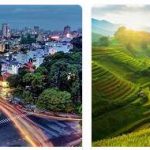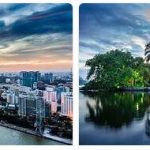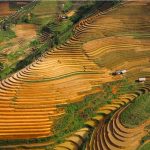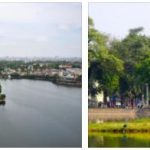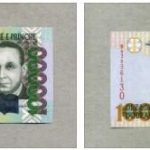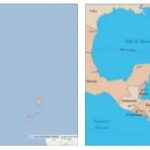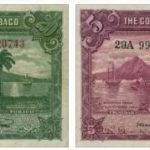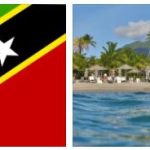Health care
Vaccinations
| Vaccination needed | receipt required | |
| yellow fever | 1 | |
| cholera | 2 | |
| Typhoid & Polio | Yes | – |
| Eat Drink | ||
| malaria | 3 | – |
Overview
There are hospitals in major cities and health centers in all provinces, but facilities are limited. It is recommended to take out travel health insurance and travel repatriation insurance. Check findjobdescriptions for more information.
Notes vaccinations
[1] A vaccination certificate against yellow fever is required for all travelers arriving within 6 days of staying in the infected areas designated by the WHO and who are over one year old. Excluded are travelers who have not left the transit area in the infected areas and transit passengers who do not leave the transit area in Vietnam. In Vietnam itself there is no risk of yellow fever infection. [2] A certificate of vaccination against cholera is not an entry requirement, but the risk of infection exists primarily in the capital Hanoi and in the provinces of Binh Tri Thien, Nghia Binh and Phú Khánh. Since the effectiveness of the vaccination is disputed, it is recommended obtain medical advice in good time before the start of the journey. To protect yourself, you should practice careful drinking water and food hygiene. Vaccination is only recommended in rare cases. [3] There is a risk of malaria nationwide all year round (high risk in the north in the rainy season April-October) below 1,500m altitude, especially in the central highlands in the provinces south of 18°N: Dak Lak, Gia Lai, Binh Phuoc, and Dak Nong Kon Tum. As well as inland coastal areas of Quang Tri, Ninh Thuan, Quang Nam and Khanh Hoa, fewer infections in the south including Mekong Delta. There is little or no risk of malaria in the coastal areas and in the north. The urban areas including Ho Chi Minh City, Hanoi and the surrounding area up to Ha Long Bay are considered malaria-free. There are resistances against the standard drugs,
Food and drink
Due to the risk of possible intestinal infections, careful drinking water and food hygiene must be ensured. Avoid eating and buying food from cheap street restaurants and markets. Water should generally either be boiled or otherwise sterilized before drinking, brushing your teeth and making ice cubes, or it should be bought packaged. When buying packaged water, you should make sure that the original packaging has not been opened. Milk is often unpasteurized and should also be boiled. Only mix dry and canned milk with sterile water. It is best to avoid dairy products made from unboiled milk. Meat and fish dishes should only be well cooked and served hot. Eating raw salads and mayonnaise should be avoided. Vegetables should be boiled and fruit peeled.
Other risks
The standard vaccinations for children and adults recommended by the Robert Koch Institute (including against tetanus, diphtheria, pertussis (whooping cough), mumps, measles, rubella, polio, pneumococci and influenza) should be refreshed before the trip if necessary. Schistosomiasis pathogens occur primarily in the Mekong Delta. Swimming and wading in inland waters should therefore be avoided. Well maintained swimming pools with chlorinated water are safe. Dengue fever, transmitted by mosquitoes, occurs throughout the country throughout the year, but peaks from April to October. An effective insect repellent is recommended. V. a. in the rural areas, filariasis caused by insects occurs. Effective insect protection reduces the risk of transmission. Typhus occurs nationwide. The fever is caused by clothes lice. To protect yourself, you should practice regular body and clothing hygiene. Vaccination should only be considered in rare cases. Hepatitis A and hepatitis B occur nationwide. A hepatitis A vaccination is generally recommended. Vaccination against hepatitis B should be given during longer stays and close contact with the local population, as well as for children and young people in general. HIV/AIDS is a danger for everyone who takes the risk of infection: unprotected sexual contact, unclean syringes or cannulas and blood transfusions can pose a significant health risk. There is an increased risk of contracting Japanese encephalitis from May to October, especially in rural and suburban areas. Rabies occurs nationwide. The main carriers are dogs, cats, forest animals and bats. Vaccination is recommended for backpackers, children, professional risk groups and for longer stays, medical centers are not always easy to reach if necessary. In the case of bite wounds, seek medical help as soon as possible, as the course of the disease can be dramatic. Tuberculosis occurs. Vaccination should be considered in case of particular exposure. An increase in hand, foot and mouth disease infections has been reported, particularly from the south of the country. Children often fall ill, and small children in particular are at risk. Fever and blisters on the hands, feet and mouth are the classic signs. Good personal hygiene measures should be observed.
bird flu
Cases of illness and outbreaks of bird flu were mainly reported from the regions of Khanh Binh Tay Bac, Tran Van Thoi and Ca Mau. Direct contact with sick animals and visits to poultry markets should be avoided.
Health certificate
An HIV test is required for stays longer than 3 months. Foreigners wishing to marry a Vietnamese woman must provide a medical certificate proving that they are free from STDs and HIV. Last minute changes are possible. Information can be obtained from the responsible consular representation.
Money
Currency
New dong. Currency code: D, VND (ISO code). Banknotes are in denominations of 500,000, 200,000, 100,000, 50,000, 20,000, 10,000, 5,000, 2,000, 1,000, 500, 200 and 100 D. Coins are in denominations of 5,000, 2,000, 1,000, 2000 and 2000 D
Credit cards
Major credit cards such as Visa, Mastercard, Diners Club and American Express are only accepted in large hotels, by international rental car companies, shopping centers and travel agencies in larger cities. Cash payment is required in rural areas and smaller towns. Details from the issuer of the relevant credit card.
ATMs
Bank cards With the credit card and pin number, money can be withdrawn from ATMs in large cities. The Girocard (formerly ec card) with the Cirrus, Plus or Maestro symbol is accepted worldwide. It can be used at some ATMs with the Cirrus, Plus or Maestro symbol in major cities. To be on the safe side, travelers should always have an alternative source of money such as cash. Further information from banks and credit institutes. Attention: Travelers who want to pay with their bank customer card abroad and withdraw money should find out from their bank about the possibility of using their card before starting their journey.
Travelers cheques
Traveller’s checks are no longer available in Germany and Switzerland and are hardly available in Austria. Traveller’s checks can be cashed at Vietcombank in major cities in Vietnam. Traveller’s checks denominated in US dollars will not be accepted.
Bank opening hours
Mon-Fri 08.00-11.30 and 13.00-15.00, Sat 08.00-13.00 (deviations are possible).
Foreign exchange regulations
When importing cash in foreign currencies with a value of more than 5,000 US dollars and cash in Vietnamese currency Dong with a value of more than 15 million Dong, a declaration is required. Export up to the declared amounts, minus the exchange amounts. All receipts should be kept.
Currency Exchange
Money should only be exchanged in official exchange offices and receipts should be kept well. US dollars (in small, undamaged bills) are preferred, although other currencies can be exchanged. In big cities, foreign currencies can be exchanged without any problems, in rural areas only US dollars can be exchanged.
Currencies
| Code | Symbol | Exchange rates (no guarantee) |
| VND | ₫ | 1 EUR = ₫23674.00 1 CHF = ₫28205.00 1 USD = ₫22809.00 |

